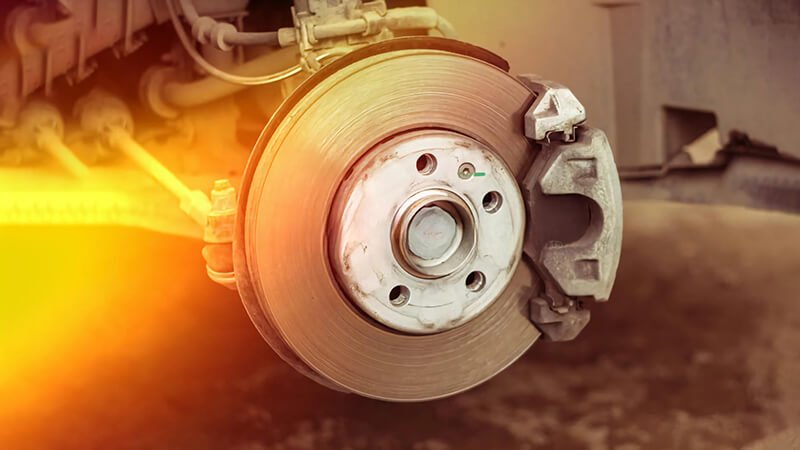If you don’t have a piston retracting tool, changing front brake pads can feel overwhelming. But what if you could do it quickly, safely, and without special equipment?
Yes, you can install front brake pads without a piston tool by using a C-clamp and your old brake pad—if the pads are built with precise thickness and material quality.
Many technicians and even distributors assume that a piston tool is essential. It isn’t. With the right brake pads—like the ones we make at Runex Auto—you can simplify the entire process. Let me explain how and why that works.
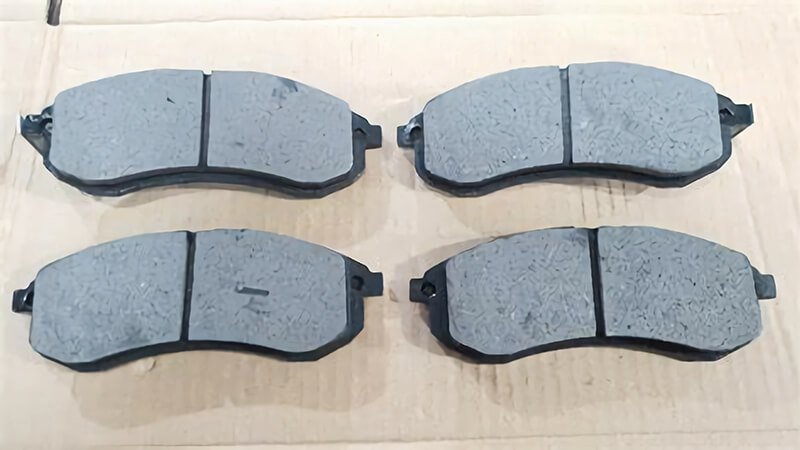
How to retract front brake piston without tool?
Changing brake pads on a busy day and realizing you don’t have a piston retracting tool is a nightmare. I’ve seen mechanics pause work, delay deliveries, and get stuck. The stress is real.
To retract the front brake piston without a tool, place your old brake pad against the piston and use a C-clamp to press it back slowly. This method works best with brake pads that have stable and precise backing plate thickness.
Why backing plate thickness makes this work
At Runex Auto, we produce brake pads with carefully engineered backing plate dimensions. That precision is crucial when applying manual pressure to retract pistons.
Three key properties of Runex brake pads:
| Feature | Benefit | Impact on Piston Retraction |
|---|---|---|
| Optimized backing plate1 | Uniform force distribution | Piston retracts evenly, avoids tilt |
| Consistent pad thickness | Predictable contact with piston surface | Makes compression safer |
| Heat-resistant friction layer2 | Maintains shape under pressure | Prevents crumbling during retraction |
I had a client in the UK—Joe, a procurement lead at a major distributor—who called me in a panic. His team had dozens of vehicles lined up, but no piston retracting tools on hand. I told him, “Use the old pad, clamp it.” He tried it using our Runex pads. It worked. His mechanics finished everything that day, and he reordered twice in that same month.
This method is not just a backup—it’s part of an efficient, low-downtime service workflow. And the right pads make all the difference.
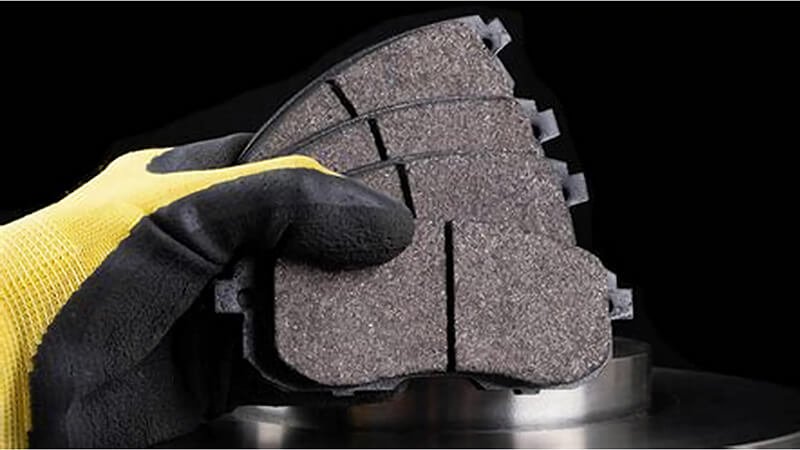
How to retract caliper piston with integrated parking brake?
Integrated parking brake systems often intimidate mechanics. They combine braking and parking functions, which means the pistons resist traditional compression.
To retract caliper pistons with integrated parking brakes, you often need to rotate the piston clockwise while applying pressure—this mimics the function of electronic retractors. But with smart pad design, simpler tools like brake cube tools or pliers can work too.
Mechanical resistance doesn’t mean complexity
Some integrated systems are electronic and require diagnostic tools. But many mechanical ones only need rotation.
At Runex3, we account for this. Our pad sets come with chamfered edges and stable steel shims that tolerate slight misalignment during piston rotation.
Key design supports from Runex Auto:
- Rotation-ready friction surface: Allows twisting movement without cracking the edge.
- Durable adhesive bonds: Prevents delamination under uneven stress.
- Shim flexibility: Maintains alignment even when piston pushes back with resistance.
Workaround for rotation systems
Even without an electronic scan tool, a simple brake cube (an inexpensive cube-shaped adapter) or even long-nose pliers can be enough when the pad is forgiving. Our clients in Eastern Europe favor these setups—they serve fast turnover garages with limited diagnostics access.
For me, that’s the power of adaptable product engineering4. We don’t just sell pads—we help solve field problems, like rotating pistons without digital tools.
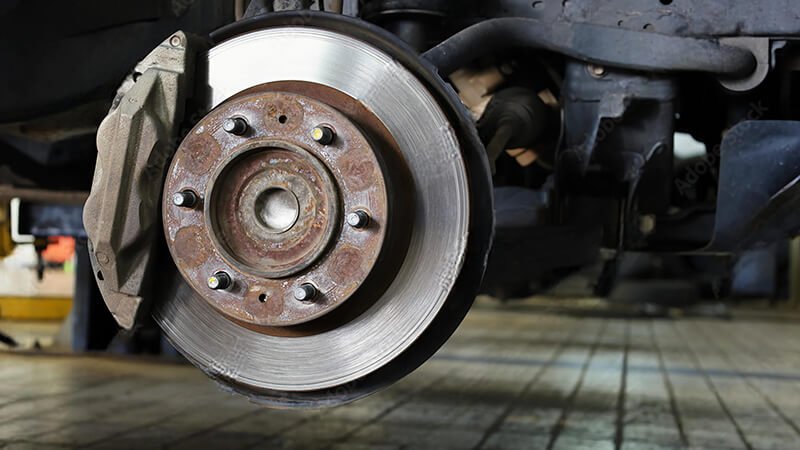
How to compress caliper when changing brake pads?
So you've removed the old pads. Now the caliper won’t fit back because the piston’s sticking out. This is common. Many people panic or reach for expensive tools.
To compress a brake caliper during pad replacement, insert the used pad against the piston, then tighten a C-clamp or large channel lock pliers until the piston fully retracts into the bore.
Why material behavior matters
If your brake pad isn’t firm enough—or its backing plate flexes—you’ll waste effort. Worse, the piston might jam sideways or damage the caliper seal.
Our Runex brake pads5 avoid this. Here’s how:
What makes compression smooth with Runex pads:
| Property | Runex Brake Pads |
|---|---|
| Backing plate stiffness | High |
| Friction material resistance | Stable at hand compression pressure |
| Pad edge integrity | Retained under clamp load |
We use quality control processes that measure backing plate flatness to microns. Why? Because that affects how the force transfers during compression. Technicians don’t think about it—but when they say, “These pads just feel easier to install,” this is why.
I’ve tested this in-person in our facility with a manual clamp6 setup. Poor pads twist. Ours don’t. The piston moves in—smooth, straight, clean.
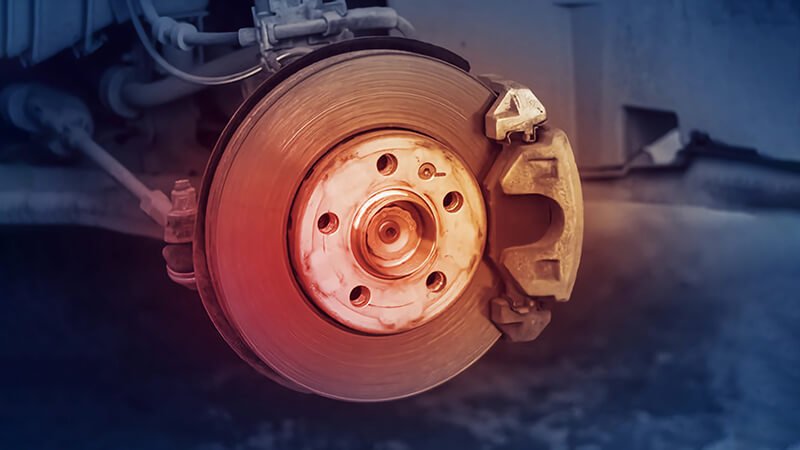
Why are compression brakes prohibited?
“Compression brakes prohibited” signs often appear on highways or near residential zones. But these have nothing to do with pad installation. Still, customers sometimes ask us, so here’s the short version.
Compression brakes—also known as Jake brakes—are noisy engine braking systems used in trucks. They’re banned in many cities due to their loud sound, not because of safety issues.
Misunderstanding the term
People sometimes confuse compression braking with manual piston compression. They’re unrelated. One happens in engines. The other happens in brake calipers.
At Runex, our focus is brake pads, not engine brake systems. But this confusion still comes up—especially from clients new to automotive terminology.
Here’s a simple breakdown:
Comparison table:
| Term | Meaning | Related to Pads? |
|---|---|---|
| Compression brakes7 | Engine-braking system in trucks | No |
| Compressing piston | Manual action during pad install | Yes |
| Brake pad compression8 | Refers to pad thickness under stress | Yes |
When we work with procurement leads or workshop managers, we clarify these points. Clear language avoids mistakes in ordering, training, and safety instruction.
%[compression brake ban explanation]https://runexauto.com/wp-content/uploads/2025/06/A-collection-of-different-types-of-car-brake-pads.jpg "compression brake ban explanation")
Conclusion
Installing front brake pads9 without a piston retracting tool is completely doable—if you choose the right pads. Our Runex Auto brake pads make manual compression easy with C-clamps or hand tools. Thanks to precise backing plate thickness, high durability, and reliable friction layers, our pads support efficient workflows without special gear. From the UK to Eastern Europe, our clients tell the same story: low downtime, no surprises, and repeat orders.
-
Discover how an optimized backing plate enhances brake pad performance and ensures even piston retraction. ↩
-
Learn about the advantages of heat-resistant materials in brake pads and their role in maintaining performance under pressure. ↩
-
Discover how Runex Auto's innovative brake pad designs can enhance your vehicle's performance and simplify maintenance. ↩
-
Discover the significance of adaptable product engineering in solving real-world mechanical challenges effectively. ↩
-
Discover how Runex brake pads enhance vehicle performance with high stiffness and stable friction, ensuring smooth and efficient braking. ↩
-
Discover how manual clamps ensure precise brake pad testing, enhancing installation ease and performance reliability. ↩
-
Understanding compression brakes is crucial for distinguishing them from brake pads, ensuring accurate communication in automotive contexts. ↩
-
Exploring brake pad compression helps grasp its significance in performance and safety, vital for anyone involved in automotive maintenance. ↩
-
Finding the best auto brake padss from Runex. ↩

